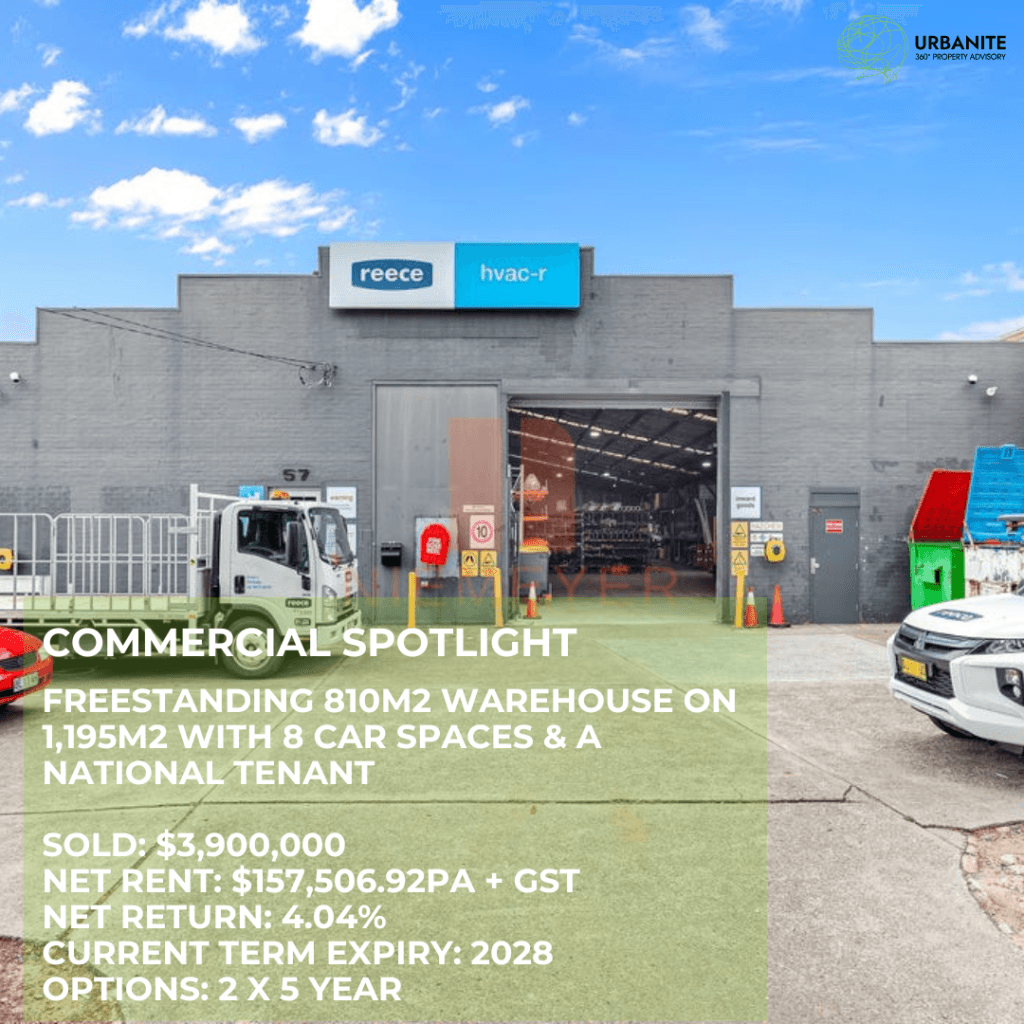By Anna Porter of Urbanite // The Club’s division of Suburbanite
The commercial property market in Australia offers a sophisticated investment class, presenting both lucrative opportunities simultaneously with substantial risks. Unlike residential property, commercial real estate operates within a different framework, often requiring greater expertise, higher capital investment, and an in-depth understanding of legal and regulatory frameworks.
At Urbanite Property Advisory, we help many clubs build commercial portfolios to diversify their revenues. We typically avoid retail premises because of the substantial obligations relevant retail lease legislation places on the property owner. Designed to create a harmonious relationship with tenants and landlords, the Retail Leases Act (NSW & VIC)/Retail Shop Leases Act (QLD) can sometimes turn a great investment for a club into a sour one. Whilst each state has slightly different framework, there are many similarities between the NSW, QLD and Victorian legislative parameters.
The Appeal of Commercial Property Investment for Clubs
Commercial property is an attractive investment option for clubs to create additional revenue that isn’t reliant on gaming. It typically offers higher rental yields compared to residential property, with long-term leases that provide a stable income stream and capital growth in the asset value. Tenants in commercial spaces often sign leases for five to ten years, reducing vacancy risks and ensuring a predictable cash flow. Additionally, commercial property leases frequently include provisions where tenants cover outgoings such as maintenance, council rates, and insurance, making the investment more financially viable.
The potential for capital growth is particularly strong in prime locations or emerging business hubs. Well-located office buildings, industrial warehouses, and bulky-goods premises can see significant appreciation, especially when tied to infrastructure development and economic growth.
The Complexity and Risks of Commercial Property Investment
While commercial property presents compelling opportunities, it is also a more sophisticated asset class that demands careful consideration. Unlike residential leases, commercial lease agreements are often complex, obliging expert legal advice to ensure favourable terms. Market fluctuations, economic downturns, and changes in consumer or business demand can significantly impact occupancy rates and rental income.
A key risk associated with commercial property, is the regulatory burden imposed by retail leases legislation. This legislative framework applies to a significant portion of commercial properties, particularly those leased for retail purposes, and places considerable obligations on landlords. Clubs must be aware that properties falling under this legislation are subject to strict rules designed to protect tenants, which can limit a landlord’s flexibility in lease negotiations and rental adjustments.
The Challenges of the Retail Leases Act
The Retail Leases Act (NSW & VIC)/Retail Shop Leases Act (QLD) is designed to create a fair and balanced relationship between landlords and tenants. However, from an investor’s perspective, the regulation introduces several challenges, including:
- Mandatory Lease Disclosure Requirements – Before entering a lease, landlords must provide tenants with a disclosure statement outlining key lease terms, rent review mechanisms, and other relevant details. Failure to comply can lead to penalties or even lease disputes.
- Ratchet clauses are prohibited – These clauses are traditionally designed to prevent rent from decreasing, but retail leases are prohibited from containing such clauses under the Act.
- Restrictions on Rent Reviews – Unlike in non-retail commercial leases where landlords can negotiate rent adjustments freely, the legislation imposes limitations on how and when rent can be increased, potentially affecting income growth.
- Obligations for Fit-Out Contributions – Landlords may be required to contribute to or approve tenant fit-outs, leading to upfront costs that reduce immediate returns on investment.
- Compensation for Business Disruption – If the landlord conducts major renovations or redevelopments that disrupt the tenant’s business, the tenant may have grounds for compensation, adding an additional financial burden.
- Limitations on Lease Termination – The law imposes restrictions on a landlord’s ability to terminate leases, making it more difficult to evict underperforming tenants or repurpose the property.
- Inability to pass along some costs to the tenant – Such as land tax and legal fees, which can often be a recoverable outgoing in many other commercial leases.
Strategic Considerations for Clubs
Clubs must conduct thorough due diligence before purchasing commercial properties that fall under this legislative framework. Engaging experienced property advisors and lawyers can help navigate the regulatory landscape and minimize potential pitfalls.
Urbanite specialise in working with clubs to diversify their revenue and maximise their property assets. We build property portfolios for clubs and have access to a range of property classes across the country.
Urbanite’s Commercial Property Spotlight: Sydney Yields in 2025
*Address available on request*

www.urbanite.com.au
anna@suburbanite.com.au
